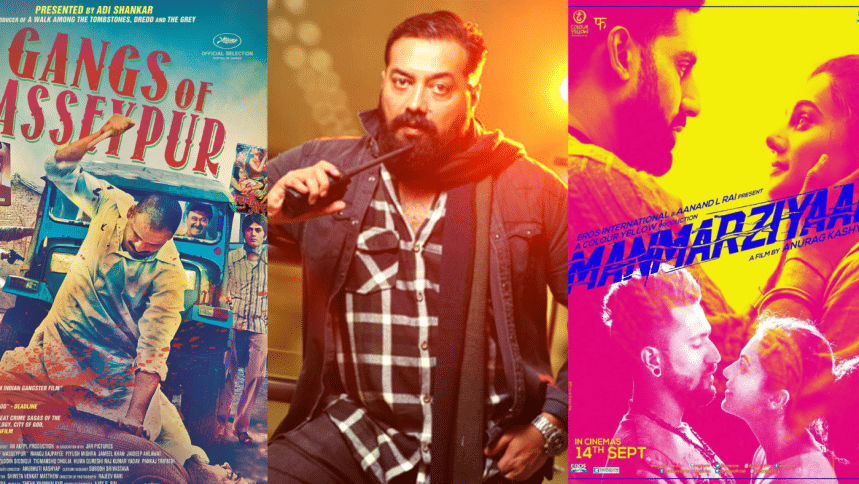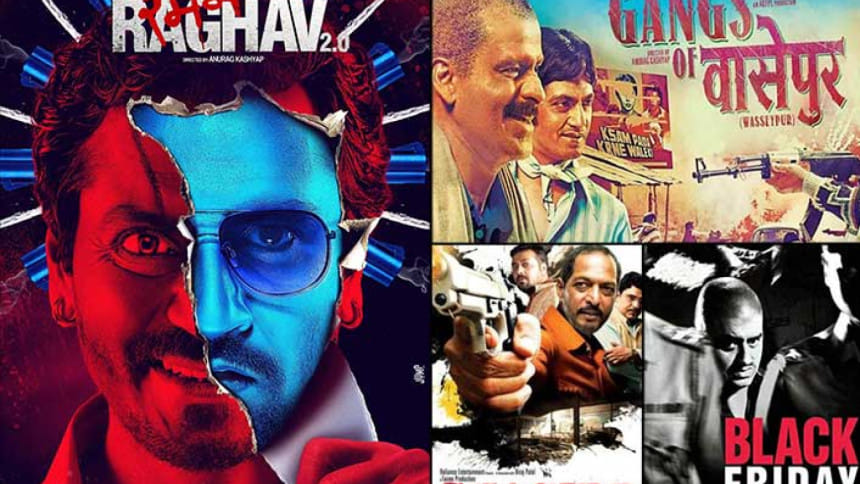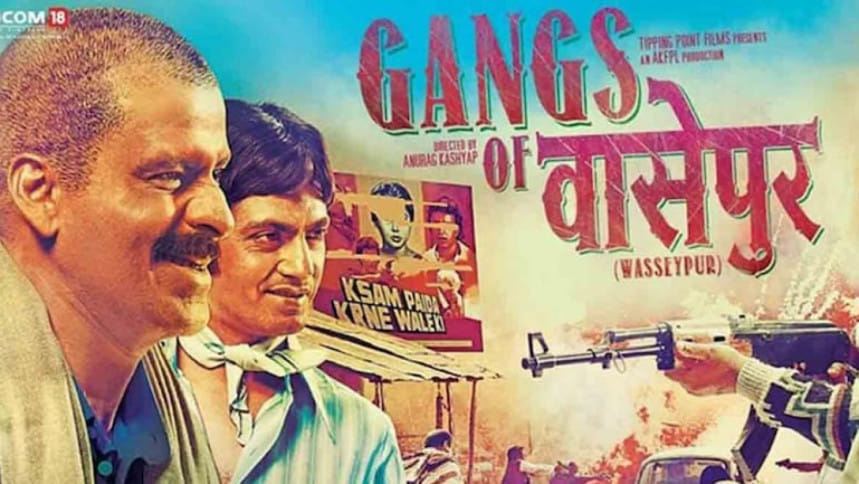Anurag Kashyap: True to the streets, true to the hearts

Anurag Kashyap, a popular name in Indian cinema, perverted into the genre of filmmaking that constitutes the grim realities of Indian society and communities, making him a cult favourite.
The unconventional filmmaker never shied away from telling the most grime stories of life, with every critically acclaimed film he made. By creating a distinctive style of his own, he has earned the right to be called an auteur for his work in Indian cinema over the years. Using his in-depth knowledge and passion for cinema, the storyteller creates stories, drawing inspiration from sources as diverse as Tamil, Italian, and Korean films.

Before coming into direction, Anurag Kashyap began his career as a screenwriter. He gained success in screenwriting for his originality and distinctive writing style, but he always wanted something more. Anurag wrote the scripts for the Filmfare Award-winning "Satya" (1998), and the Academy Award nominated Canadian film "Water" (2005).
"Black Friday" (2004), his debut feature film, was nominated for the Golden Leopard (Best Film) at the 57th Locarno International Film Festival (2004) and received the Grand Jury Prize at the 3rd Annual Indian Film Festival of Los Angeles (2005).
The director is regarded as one of the most versatile and prolific directors currently working in Hindi cinema today. The acclaimed director has worked on movies that helped define their respective genres, such as the "Gangs of Wasseypur" series, "Mukkabaaz", "Black Friday", "Manmarziyan", "Raman Raghav 2.0", "Dev D", and others. He co-directed the crime thriller "Sacred Games'', the first Netflix Original series from India, which was adapted from a novel by Vikram Chandra.

It would be unjust to discuss Anurag Kashyap's films without including his two-part masterpiece, "Gangs of Wasseypur" (2012), which later became a cult classic in India and abroad. The series is undoubtedly the most popular film franchise in Hindi cinema.
The movie, which takes its cues from the popular Brazilian film "City of God" (2002), immerses us in the violent war between the mafia families of Dhanbad. It sets out to tell a story connecting several generations. The film is filled with excellent performances by a large ensemble cast of actors who were conscious of their roles, including Nawazuddin Siddiqui, Manoj Bajpayee, Huma Qureshi, Richa Chadha and others. It didn't take long for the movie's quotable lines and hilarious moments to become memes that are still used in mainstream culture today.
Anurag Kashyap's Dev. D" was the recreation of 1917 novel "Devdas", by Sarat Chandra Chattopadhyay. The film is divided into three portions, devoted to three protagonists of the film –Paro, Dev, and Chanda. Unlike the original novel and countless films inspired by it, Anurag created a contemporary interpretation of the story, centring plots located near Punjab and Delhi. The film, which became commercially successful and critically acclaimed, features Mahie Gill, Abhay Deol, and Kalki Koechlin in her debut role.
The director did not make the central character Dev as endearing as the predecessor movies had. In his movie, all of the characters are flawed, clueless human beings who try to make sense of their unfair lives throughout their screen presence.
However, one cannot help but become invested in the story and relate to the characters, and the hypnotic visuals are much to blame for this. The film has all the elements necessary to become an instant classic, from iconic songs like "Emotional Atyachaar" and "Pardesi", both composed by Amit Trivedi, to surreal images that are impossible to turn away from. "Dev.D" is undoubtedly a disorienting film, but it's worth the journey into Kashyap's bizarre world.
"Gulaal" (2009) is one of Anurag Kashyap's lesser-known dark thrillers. The political drama is not for the weak-hearted. "Gulaal" touches on each aspect of the story, from nepotism to power games. Kay Kay Menon's mind-blowing performance in the film will be remembered for generations.
In the film, Dilip (Raj Singh Chaudhary), the protagonist, a young law student from the fictional Rajpur, is attacked by a group of gangsters. He decides to take vengeance for the torture he suffered and enters into politics. As Dilip navigates through college life, the movie addresses problems, including ragging, caste conflicts, and violent clashes against the backdrop of student politics. The movie has a strong plot with several intriguing arcs, and each character is thoughtfully developed. Raj Singh Choudhary is excellent as the lead, while Kay Kay Menon brings another outstanding performance to the screen. The director's eerie, brooding style elevates their performances. The movie is a stunningly unorthodox triumph.
The 2016 movie "Raman Raghav 2.0" has a standout performance by veteran actor Nawazuddin Siddiqui, along with Vicky Kaushal and Sobhita Dhulipala in her debut role.
The story, narrated in eight chapters, revolves around the psychotic serial killer Ramanna (Siddiqui), who becomes obsessed with Raghavan (Kaushal). The movie is a neo-noir thriller based on the 1960s serial killer Raman Raghav. Its biggest accomplishment is that it doesn't shy away from darkness. An utter gore-fest of violence is blasted on the screen, and it doesn't ease up throughout. And oddly, Kashyap manages to temporarily make you sympathize with the antagonist by diving deeply into his psyche. In addition to providing a stylized visual spectacle that is delightful to watch, the movie also depicts a character study of its leading men. "Raman Raghav 2.0" is the director's amazing and original contribution to the serial killer genre of cinema.
Other captivating films by Anurag Kashyap include "No Smoking", "The Girl in Yellow Boots", "Choked", "Mukkabaz", and the most recent releases, "AK vs AK"and "Dobaaraa". Each of his movies combines the best elements of his influences with the realities of the current world.
Today marks the 50th birthday of this unconventional director, who has made a place for himself in the formula-driven industry of Bollywood.

 For all latest news, follow The Daily Star's Google News channel.
For all latest news, follow The Daily Star's Google News channel. 





Comments